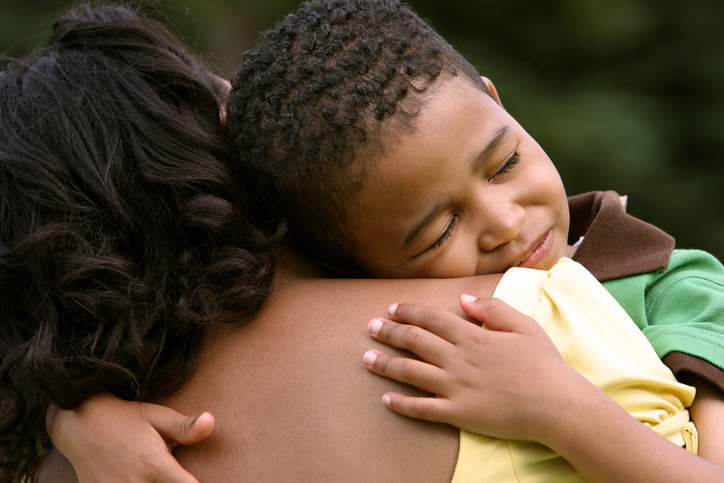 I’d be lying if I said I haven’t been avoiding these tough conversations with my children. One is a 3-year-old, extremely inquisitive and aware. The other, 9-years-old, is an empath at heart. I recently linked up with Angela Adams Ali, PhD, a psychologist and clinical therapist based in Chicago who specializing in Marriage and Family Therapy, for a few pointers.
I’d be lying if I said I haven’t been avoiding these tough conversations with my children. One is a 3-year-old, extremely inquisitive and aware. The other, 9-years-old, is an empath at heart. I recently linked up with Angela Adams Ali, PhD, a psychologist and clinical therapist based in Chicago who specializing in Marriage and Family Therapy, for a few pointers.
If you’re anything like me, you may be feeling overwhelmed by the constant bombardment of racially fueled headlines:
"Baltimore Police Shoot, Kill Woman Holding Boy"
“Minnesota Police Shoot Philando Castile During Traffic Stop”
“Police Killed More Than 100 Unarmed Black People in 2015”
“Louisiana Father of Five Alton Sterling Fatally Shot by Police”
While guarding my kids from news reports, I educate them that guns are very dangerous and never to be touched, as well as tailor my discussions to their developmental understanding to avoid creating anxiety and possible night terrors. Ali suggests that honesty is the best policy when discussing racially fueled topics with children, even if it “may hurt them.”
“Kids look to their parents to ensure they are safe. For example, if there is a lot of fighting or unrest in a household, that can actually traumatize the children. The same applies when it comes to events occurring outside the house,” Ali tells BlackDoctor.org.
So, how does one approach schooling our little ones on growing up Black in America? “While I can’t say don’t react [to recent shootings, police harassment, watching family getting dragged away in handcuffs] – this is an emotional time for everyone in Black America. Children need comfort. There has to be balance,” said Ali on practicing “calm” when discussing police inflicted trauma with our legacies.
Now, in the event a young child witnesses an event as heartbreaking as Castile’s killing or the recent killing of Korryn Gaines who was holding her son at the time, “professional therapy is a must,” continued Ali.
In addition to comforting your children, Ali states it’s critical to “tell them the absolute truth,” when discussing police trauma, violence and racism. “Here’s the thing. There's a lot of Whites [who] would like to believe this is a post racial society. There’s also a lot of Blacks [who] believe this is a post racial society. When in reality, it’s safe to say a 3-year-old today won’t even see a post racial society. There’s too much work to be done.”
“So, while as parents our natural reaction is to protect our children from the ugly truth, children eventually grow up to learn the truth themselves. We truly only serve them when we are being honest: this is our history, this is the current situation and this is what racism is...”
“Of course, growing up in diverse situations [for example, a mix friends at school] makes it difficult for them to process. They may come back like ‘well wait a minute this is my friend and we like each other.’ But at that point, it’s your responsibility to provide them with a broader example of racism,” continued Ali. “It’s for their own good.”
Ali added, “It [knowing about racism] used to be important because well, ‘it’s your history’ but now knowing your history can save your life.”
While this is just the foundation of an ongoing discussion, your bravery to begin it will plant a seed – one that may very well change our future.
"Our lives begin to end the day we become silent about things that matter." – Martin Luther King Jr.









